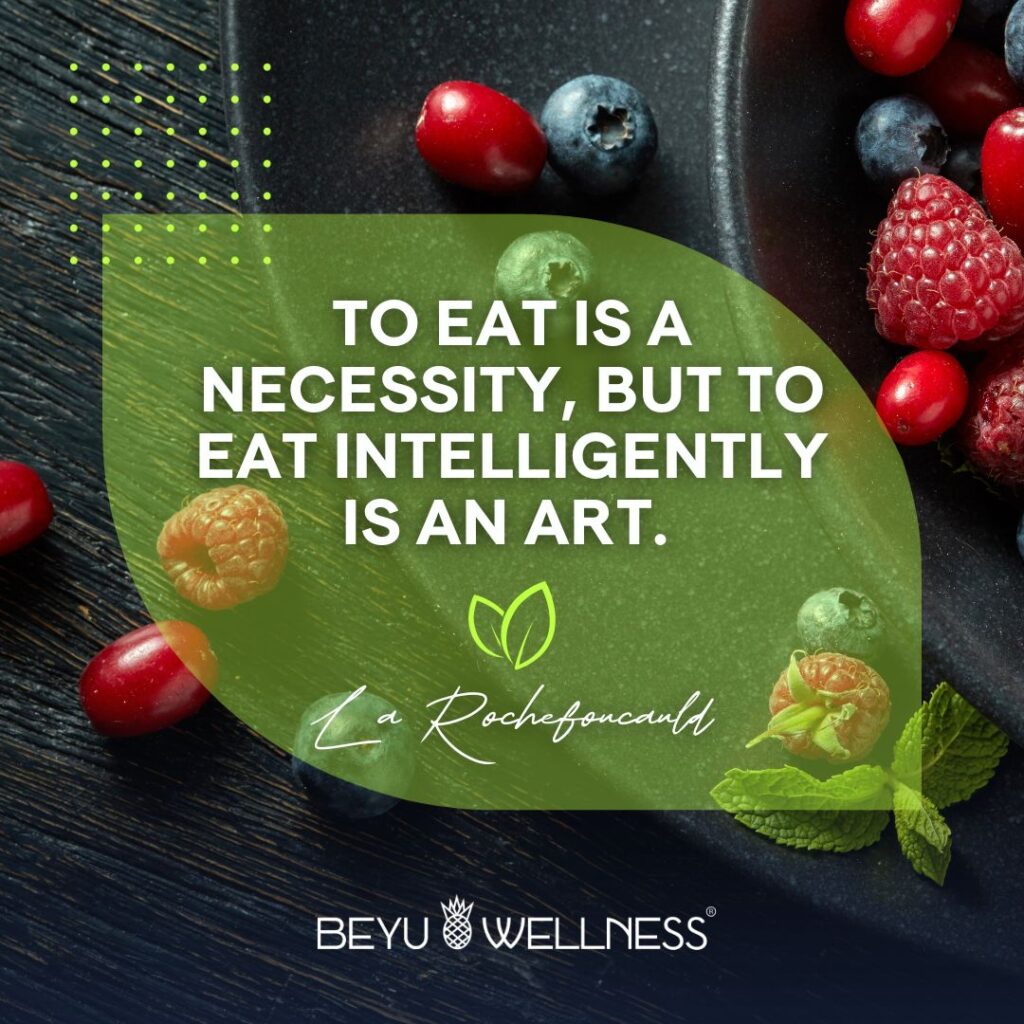
Are you a busy professional juggling countless responsibilities and tight schedules? In the midst of your hectic life, it’s easy to overlook the importance of intelligent eating. La Rochefoucauld once said: “To eat is a necessity, but to eat intelligently is an art.” In this article, we’ll explore what it means to eat intelligently, how it impacts our physical and mental health, the challenges that come with it, and I’ll share insights on how I manage to eat intelligently.
Eating intelligently goes beyond just filling your stomach; it’s about nourishing your body and mind effectively. It means making thoughtful and informed choices about your food. It’s one of your essential needs because, let’s face it, if you settle for average foods, your body and mind will perform on average levels.
Think of your body and mind like a car. You want your car to run smoothly and be in great shape, right? Well, just like a car needs good fuel to run well, your body and mind need the right kind of food to work their best. That’s where intelligent eating comes in. Let’s explore how it impacts your physical and mental health.
As a busy professional, you face unique challenges when it comes to eating intelligently:
Convenience: Busy schedules often lead to grabbing quick, convenient, and often unhealthy meals. This initial convenience can lead to long-term health issues.
Stress and Fatigue: Hectic workdays can trigger stress and exhaustion, making it tempting to opt for comfort foods. When stress hormones are released they shut down your body’s non-vital systems which makes it more difficult to dive into intuition, meaning you’ll be challenged to read your body’s real signals and cravings.
Lack of Healthy Options: Limited access to nutritious meals while at work or during business trips can be a roadblock. It’s challenging to make healthy choices when unhealthy options surround you. For example, if donuts and bagels are the only options offered at the office, it’s more difficult to resist the temptation.
Neglecting your nutritional needs can lead to feelings of sluggishness, irritability, and even compromised health. Your body deserves better, and so do you!
As a fellow busy professional, I understand the struggles. Here’s how I prioritize intelligent eating without adding more hours to my day:
Eating Mindfully: To infuse mindfulness into my busy days, I consciously consider the origin of my food and cultivate gratitude during every meal. I take an extra step by sourcing my produce directly from local farmers at markets and engaging in conversations about their farming practices. This not only provides insight into the food supply chain but also deepens my appreciation for the nourishment on my plate.
Intelligent eating isn’t a one-size-fits-all approach. It’s highly individual and depends on your unique needs and lifestyle. Your relationship with food can either make you thrive or impact your quality of life negatively.
Remember, we all rely on food to survive, but to truly live a high-quality life, we must improve the quality of our nutrition.
Schedule a free coaching session with me by clicking on the image below.
Together, we can unlock the art of intelligent eating for your journey to a healthier, more fulfilling life.
“TO EAT IS A NECESSITY,
BUT TO EAT INTELLIGENTLY IS AN ART.”La Rochefoucauld
No Comments